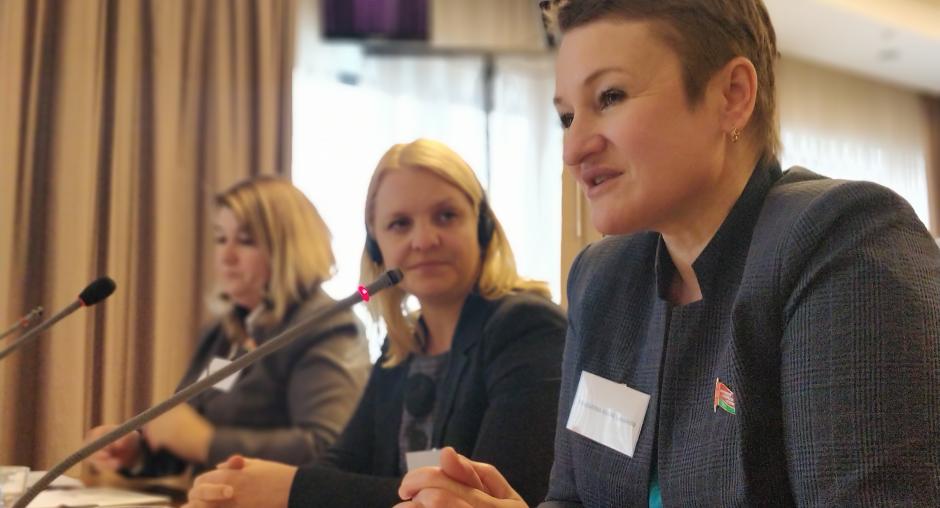ODIHR and Belarusian women parliamentarians exchange experiences on gender-sensitive legislation

The importance of gender–sensitive legislation was the topic of a meeting with Belarusian women parliamentarians organized by the OSCE Office for Democratic Institutions and Human Rights (ODIHR), in collaboration with the House of Representatives of the National Assembly of Belarus, on 27 March 2019 in Minsk.
The meeting was organized as part of the two-year, European Union-funded project “Promoting Democratization and Human Rights in Belarus”.
The twelve participants – women parliamentarians, parliamentary staff and government officials – exchanged experiences with ODIHR and other international experts on the legislative process and gender equality in the National Assembly, highlighting the importance of addressing gender aspects in all legislation. Steps taken to introduce mechanisms for advancing gender equality and women’s leadership in the National Assembly were among the issues discussed.
“We are glad to exchange experiences with women parliamentarians from Belarus,” said Tiina Kukkamaa-Bah, Chief of the Democratic Governance and Gender Equality Unit at ODIHR. “Women are often at the forefront of efforts to advance gender equality and women’s rights in their countries. All legislation should be inclusive of women and drafted with consideration for the impact on all the country’s citizens, as this makes the laws better for everyone.”
Lyudmila Makarina-Kibak, Chairperson of the Standing Committee of the House of Representatives on Health, Physical Culture, Family and Youth Policy, said: “The legislative process provides a unique opportunity for a broad discussion of various issues that are of major importance for society, and therefore an opportunity for the expression of various opinions and interests. In this regard, the legislative process is an effective instrument for affirming and implementing gender equality values and principles, strengthening the position of women, expanding their rights and enhancing their social status.”
